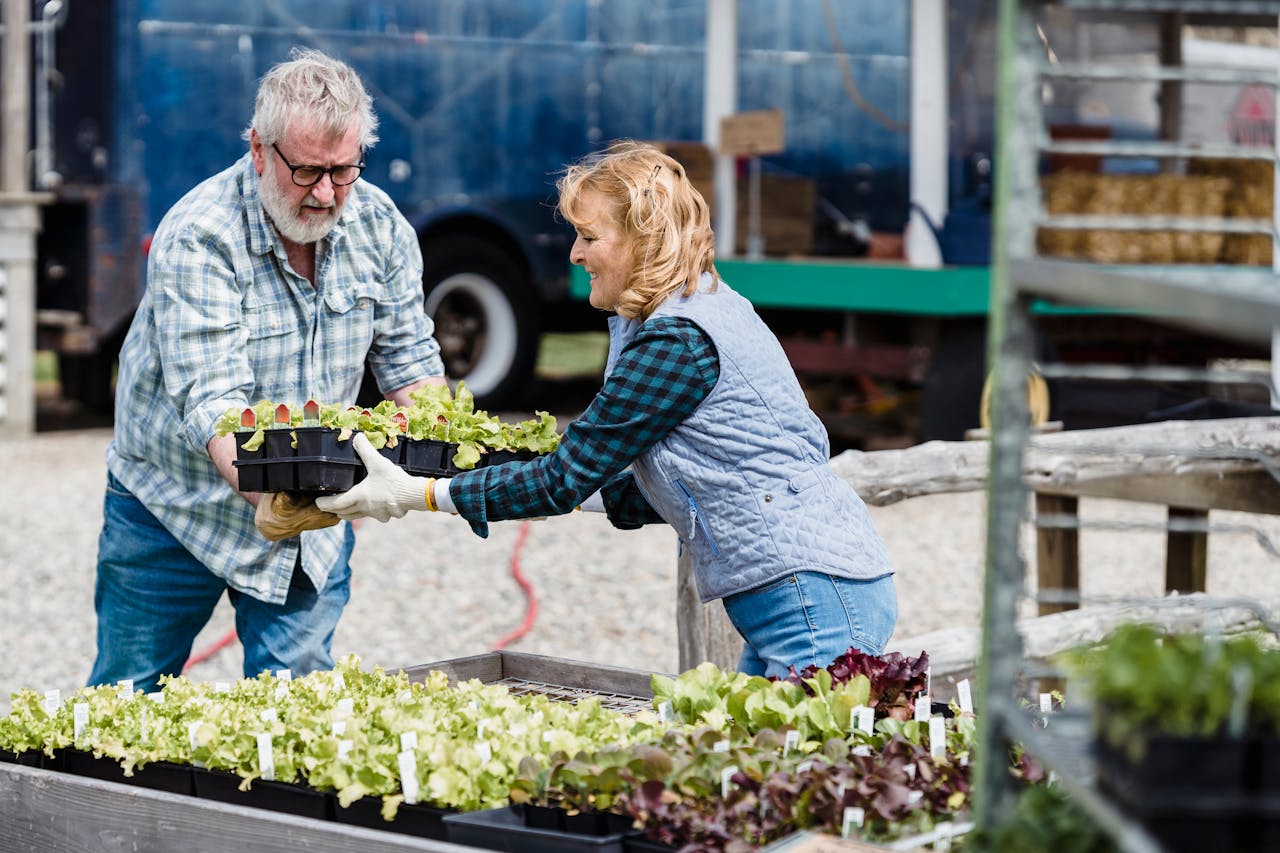For those of you who enjoy the satisfactions of gardening, you know that maintaining a healthy, vibrant garden requires more than just watering your plants. Just like us, your plants need a balanced diet to thrive. This is where fertilizers come in. In particular, organic fertilizers have been recognized as a crucial part of sustainable gardening and agriculture. But with the vast range of options available, which are the best organic fertilizers for your UK vegetable gardens? This comprehensive guide will help you navigate the world of organic fertilizers and understand their role in plant nutrition.
Understanding the Role of Organic Fertlizers in Plant Nutrition
Before we delve into specific fertilizers, let’s first talk about what exactly organic fertilizers are, and why they are important for plants. Organic fertilizers are derived from natural sources, such as plant or animal waste, or mineral deposits. They provide essential nutrients to your plants, including nitrogen, phosphorous, and potassium. Unlike synthetic fertilizers, organic fertilizers feed the soil as well the plants, improving its structure, water-holding capacity, and overall health.
Avez-vous vu cela : Create your ideal outdoor oasis at sunny garden market
The nutrients in organic fertilizers are usually not immediately available for plant uptake. They need to be broken down by soil microbes into forms that plants can use. This slow-release characteristic of organic fertilizers provides a steady supply of nutrients over a long period, promoting the sustainable growth of your plants. Moreover, organic fertilizers are less likely to cause nutrient burn, a common problem with overuse of synthetic fertilizers.
How to Choose the Right Organic Fertilizer for Your Garden
When choosing an organic fertilizer, it’s important to consider your garden’s specific needs. Different plants have different nutrient requirements, and the same plant can need different nutrients at different stages of growth. An easy way to know what your soil needs is to have it tested. Soil testing can reveal nutrient deficiencies and other potential problems, helping you make informed decisions about fertilizers.
Lire également : How to Choose the Right Type of Mulch for Your UK Garden Beds?
Next, you’ll want to consider the nutrient content of the fertilizer. On the package of any fertilizer, you’ll see three numbers, known as the N-P-K ratio, representing the percentage of nitrogen (N), phosphorus (P), and potassium (K) in the product. Nitrogen promotes leaf and stem growth, phosphorus is key for root development and flowering, and potassium strengthens plants and helps them resist diseases and pests.
Lastly, consider the source of the nutrients. Some organic fertilizers, like compost or manure, are complete fertilizers, meaning they contain all the essential nutrients. Others, like bone meal or greensand, are single-nutrient fertilizers, providing only one or two nutrients. If your soil test reveals a deficiency in a specific nutrient, a single-nutrient fertilizer can be a good choice.
The Best Organic Fertilizers for UK Vegetable Gardens
Here are some of the best organic fertilizers that can help your vegetable gardens flourish in the UK climate.
Compost: Compost is a fantastic soil conditioner and a great source of nutrients. You can make compost at home using kitchen scraps, garden waste, and other organic materials. It provides a balanced supply of nutrients and improves soil texture, water retention, and microbial activity.
Animal Manures: Animal manures, such as cow, horse, or chicken manure, are packed with nutrients. They are especially rich in nitrogen, an essential nutrient for plant growth. You should compost manure before use to kill any potential pathogens.
Seaweed: Seaweed is an excellent source of trace minerals and growth hormones. It can be used in the form of liquid seaweed extract or dried seaweed meal. In addition to providing nutrients, seaweed can improve soil structure and stimulate beneficial soil bacteria.
Bone Meal: Bone meal is a slow-release fertilizer high in phosphorus, making it ideal for promoting root development and flowering.
Green Manures: Green manures, or cover crops, are plants that are grown and then incorporated into the soil to improve its fertility and structure. They can also suppress weeds and prevent soil erosion. Some popular green manures in the UK include clover, field beans, and mustard.
Using Organic Fertilizers Efficiently
Once you’ve chosen your organic fertilizer, you need to apply it correctly to maximize its benefits. The best time to apply organic fertilizers is in the spring, when plants are beginning their growth cycle. However, the slow-release nature of organic fertilizers means that you can also apply them in the autumn to prepare the soil for the next growing season.
In addition, keep in mind that organic fertilizers are not a cure-all. They should be used as part of a holistic approach to soil and plant health, which includes proper watering, mulching, crop rotation, and pest management.
Relying on organic fertilizers can help you maintain a healthy, productive vegetable garden while reducing your environmental footprint. It’s a win-win for you, your plants, and the planet. Regardless of the fertilizer you choose, remember that the goal is to nourish not just the plants, but the soil that sustains them. Healthy soil is the foundation of a thriving garden.
Tips to Improve Your Vegetable Garden with Organic Fertilisers
To ensure your UK vegetable garden is properly fed and nurtured, becoming familiar with the best methods to use organic fertilisers is essential. Apart from just applying bone meal, compost pile or fish emulsion, there are several strategies that can significantly boost your plant growth.
Firstly, it’s useful to think of your organic fertiliser as more than just plant food. It’s a way of enriching your soil structure, improving its texture and water-holding ability. This is particularly crucial in the UK climate, where rainfall levels can be unpredictable. Organic matter in your fertiliser can help improve soil drainage in heavy rainfall while retaining moisture during dry spells.
Secondly, consider the timing of application. The slow release nature of organic fertilisers is a double-edged sword. On one hand, the steady supply of nutrients ensures long-term plant growth. On the other hand, it means the nutrients won’t immediately be available when applied. To gain the most from your organic fertilisers, consider applying them in the spring, just as your plants are starting their growth cycle. This maximises the usage of the slow-release nutrients.
Thirdly, to feed plants efficiently, consider using a compost tea. A compost tea is a homemade liquid fertiliser made from steeping compost in water. It can provide a quick boost of nutrients, complementing the slow-release nutrients from your organic fertilisers.
Finally, don’t forget to rotate your crops. Different plants have different nutrient needs, and by rotating your crops, you can ensure the soil isn’t being depleted of only one type of nutrient. This practice also helps to break the cycle of pests and diseases that may affect specific crops.
Conclusion: Nourishing Your UK Vegetable Garden with Organic Fertilizers
Maintaining a healthy and vibrant vegetable garden in the UK goes beyond watering and exposure to sunlight. It involves understanding the role of organic fertilisers in plant nutrition, choosing the right type of fertilisers such as bone meal or fish emulsion, and applying them at the right time. Alongside this, adopting practices such as composting kitchen waste, using compost tea for a quick nutrient boost, and rotating your crops can greatly improve your soil structure and plant growth.
Organic fertilisers provide a sustainable and environmentally friendly option to feed plants and nourish the soil. Remember, a thriving garden begins with healthy soil, and with the correct use of organic fertilisers, you can ensure your vegetable garden is well-nourished, fostering sustainable growth for seasons to come. The right organic fertilisers can transform your UK vegetable garden into a lush, productive, and sustainable haven.






